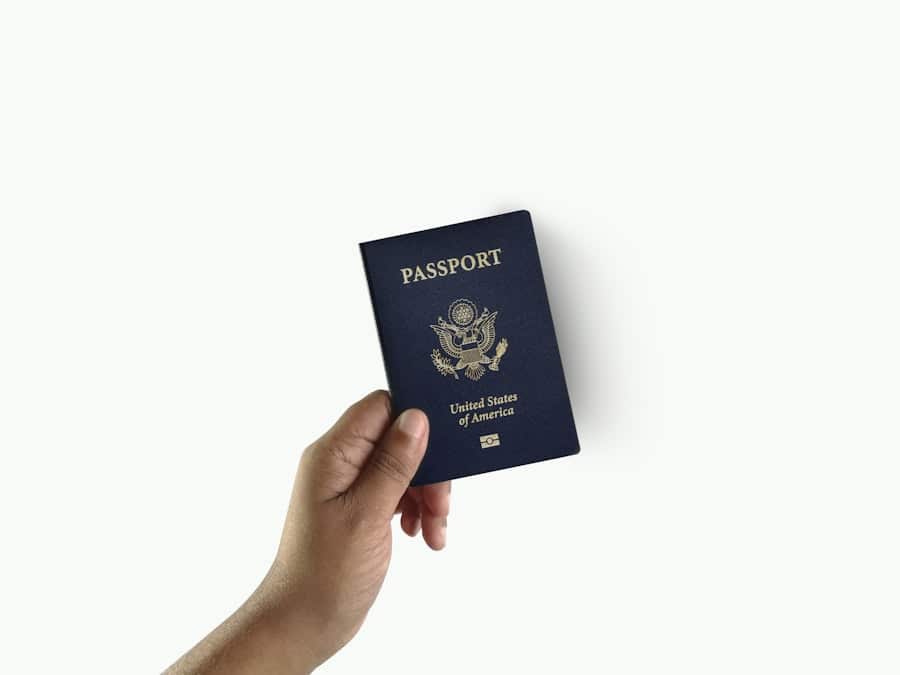The travel industry has undergone a significant transformation in recent years, largely driven by advancements in technology. Among these innovations, artificial intelligence (AI) has emerged as a pivotal force, reshaping how travelers plan their journeys. AI’s ability to process vast amounts of data and generate insights has made it an invaluable tool for travel companies seeking to enhance customer experiences.
From personalized itineraries to tailored hotel suggestions, AI is revolutionizing the way travelers interact with travel services, making the planning process more efficient and enjoyable.
AI systems can analyze user preferences, past behaviors, and even social media activity to curate travel options that resonate with individual tastes.
This level of personalization not only enhances user satisfaction but also fosters brand loyalty, as travelers are more likely to return to platforms that understand their needs. The integration of AI into travel recommendations signifies a shift towards a more user-centric approach in an industry that thrives on personalization.
Key Takeaways
- AI is revolutionizing the travel industry by providing personalized recommendations to users based on their preferences and behavior.
- AI analyzes user data such as search history, booking patterns, and social media activity to create personalized travel suggestions.
- Machine learning plays a crucial role in tailoring travel recommendations by continuously learning and adapting to user preferences.
- AI-personalized travel recommendations benefit users by saving time, offering tailored experiences, and increasing satisfaction.
- Challenges in implementing AI for personalized travel suggestions include data privacy concerns, algorithm bias, and the need for user trust and transparency.
How AI Analyzes User Data to Personalize Recommendations
Data Analysis and Trend Identification
By employing advanced algorithms, AI systems can sift through this data to identify trends and preferences that may not be immediately apparent. For instance, if a user frequently searches for beach destinations or luxury accommodations, the AI can infer a preference for relaxation and opulence, subsequently tailoring recommendations accordingly.
Real-Time Data and Enhanced Recommendations
Moreover, AI can leverage real-time data to enhance its recommendations further. For example, if a user is planning a trip during a specific season, the AI can analyze weather patterns, local events, and even crowd levels to suggest optimal travel dates and destinations.
A Personalized Travel Experience
This dynamic capability allows for a more nuanced understanding of user preferences, enabling travel platforms to present options that align closely with what users are likely to enjoy. The result is a highly personalized experience that not only meets but anticipates the needs of travelers.
The Role of Machine Learning in Tailoring Travel Suggestions

Machine learning, a subset of AI, plays a crucial role in refining travel recommendations over time. By utilizing algorithms that learn from user interactions, machine learning systems can continuously improve their accuracy and relevance. For instance, when a user engages with specific types of content—such as clicking on articles about adventure travel or saving itineraries featuring cultural experiences—the machine learning model takes note of these actions.
It then adjusts future recommendations based on this feedback loop. This iterative process allows for a more adaptive approach to personalization. As users continue to interact with the platform, the machine learning algorithms become increasingly adept at predicting their preferences.
For example, if a user who previously favored urban getaways suddenly starts exploring rural retreats, the system can quickly adapt its suggestions to include more nature-focused options. This flexibility not only enhances user satisfaction but also encourages exploration beyond established preferences, enriching the overall travel experience.
The Benefits of AI-Personalized Travel Recommendations for Users
The advantages of AI-personalized travel recommendations extend far beyond mere convenience; they fundamentally enhance the travel planning experience. One of the most significant benefits is the time saved during the research phase. Traditional travel planning often involves sifting through countless options and reviews, which can be overwhelming.
However, with AI-driven recommendations, users receive curated suggestions that align with their interests almost instantaneously. This efficiency allows travelers to focus on what truly matters: enjoying their journey. Additionally, personalized recommendations can lead to discovering hidden gems that users might not have encountered otherwise.
For instance, an AI system might suggest a lesser-known destination or a boutique hotel that perfectly matches a user’s style and budget. Such discoveries can transform an ordinary trip into an extraordinary adventure, fostering a sense of exploration and excitement. Furthermore, by providing tailored suggestions based on user preferences, AI enhances the likelihood of positive travel experiences, ultimately leading to higher satisfaction rates and repeat business for travel companies.
Overcoming Challenges in Implementing AI for Personalized Travel Suggestions
Despite the numerous benefits associated with AI in travel recommendations, several challenges must be addressed for successful implementation. One significant hurdle is data privacy and security. As travel platforms collect extensive personal information from users, ensuring that this data is protected from breaches is paramount.
Companies must navigate complex regulations surrounding data protection while also being transparent about how user data is utilized in generating recommendations. Another challenge lies in the quality and accuracy of the data being analyzed. Inaccurate or outdated information can lead to misguided recommendations that frustrate users rather than delight them.
To mitigate this risk, travel companies must invest in robust data management systems that ensure the integrity and relevance of the information being processed. Additionally, continuous monitoring and refinement of algorithms are essential to adapt to changing user preferences and market trends effectively.
Ethical Considerations in Using AI to Personalize Travel Recommendations

The use of AI in personalizing travel recommendations raises several ethical considerations that warrant careful examination. One primary concern is the potential for bias in algorithmic decision-making. If the data used to train AI models reflects existing biases—whether related to race, gender, or socioeconomic status—this can lead to skewed recommendations that do not serve all users equitably.
It is crucial for developers to implement strategies that promote fairness and inclusivity in their algorithms. Moreover, there is an ethical responsibility to ensure that users are informed about how their data is being used. Transparency is key; users should have access to clear information regarding what data is collected and how it influences their recommendations.
Providing users with control over their data—such as options to opt-out or delete their information—can foster trust between travelers and travel platforms. Striking a balance between personalization and ethical considerations is essential for building long-term relationships with users.
The Future of AI in Customizing Travel Experiences
Looking ahead, the future of AI in customizing travel experiences appears promising and full of potential innovations. As technology continues to evolve, we can expect even more sophisticated algorithms capable of understanding complex user behaviors and preferences. For instance, advancements in natural language processing may enable AI systems to engage in more meaningful conversations with users, allowing for real-time adjustments to recommendations based on nuanced feedback.
Additionally, the integration of augmented reality (AR) and virtual reality (VR) technologies could further enhance personalized travel experiences. Imagine being able to virtually explore a destination before booking or receiving real-time AR suggestions while navigating through a new city based on your interests. Such immersive experiences could redefine how travelers interact with their environments and make informed decisions about their journeys.
The Impact of AI on the Future of Travel Planning
The impact of AI on the future of travel planning is profound and multifaceted. As technology continues to advance, the ability to provide personalized recommendations will only become more refined and intuitive. Travelers will benefit from enhanced experiences that cater specifically to their desires and preferences, leading to more meaningful journeys.
However, as we embrace these innovations, it is essential to remain vigilant about ethical considerations and data privacy concerns. In this rapidly evolving landscape, collaboration between technology developers and travel industry stakeholders will be crucial in shaping a future where AI serves as a trusted partner in travel planning. By prioritizing user-centric approaches and ethical practices, we can harness the full potential of AI to create enriching travel experiences that resonate with individuals on a personal level.
The journey ahead promises exciting possibilities as we navigate the intersection of technology and human experience in the world of travel.
A related article to Using AI to Personalize Travel Recommendations is “What Trends Are Predicted for 2023” which discusses the upcoming trends in technology and business that will shape the future. To learn more about the trends for 2023, you can check out the article

